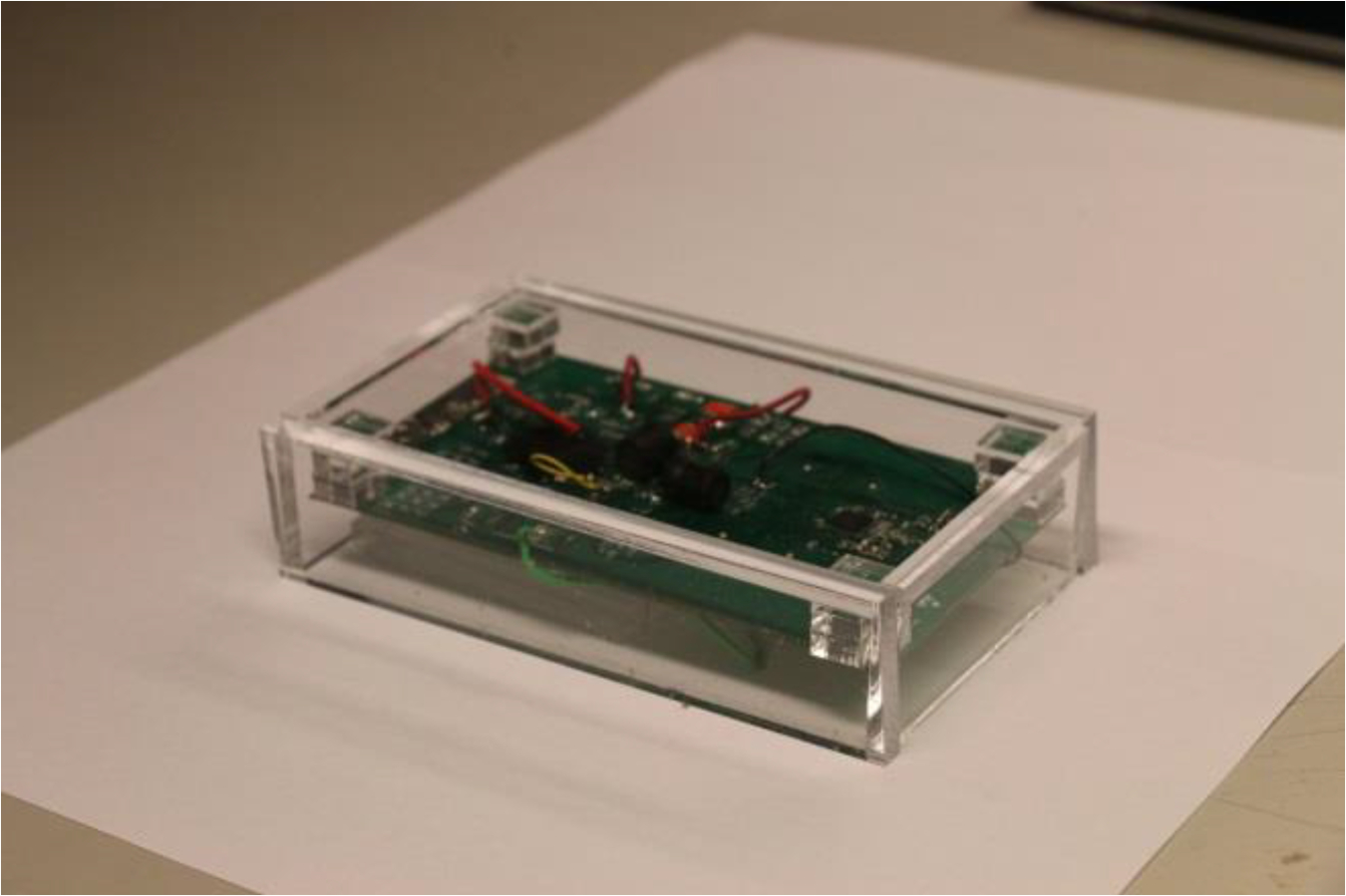Case Western Reserve University researchers are using low-power integrated circuits and wireless communications to create a low-cost sensor platform.
October 30, 2014
Self-powering wireless sensor node.
Lead Performer: Case Western Reserve University - Cleveland, OH
Partner: Intwine Inc. – Cleveland, OH
DOE Funding: $750,000
Project Term: October 1, 2014 – September 30, 2016
Funding Opportunity: Building Energy Efficiency Frontiers and Incubator Technologies (BENEFIT) - 2014 (DE-FOA-0001027)
Project Objective
The research objective of this project is to design and demonstrate a low-cost, compact, easy-to-deploy, maintenance-free sensor node technology, and a network of such sensors, which enable the monitoring of multiphysical parameters and can transform today’s ordinary buildings into smart buildings with environmental awareness. We develop the sensor node and network via engineering and integration of existing technologies, including high-efficiency mechanical energy harvesting, and ultralow-power integrated circuits (ICs) for sensing and wireless communication. Through integration and innovative power management via specifically designed low-power control circuits for wireless sensing applications, and tailoring energy-harvesting components to indoor applications, the target products will have smaller volume, higher efficiency, and much lower cost (in both manufacturing and maintenance) than the baseline technology. Our development and commercialization objective is to create prototypes for our target products under the CWRU-Intwine collaboration.
Project Impact
Through integration and innovative power management via specifically designed low-power control circuits for wireless sensing applications, and tailoring energy-harvesting components to indoor applications, the target products will have smaller volume, higher efficiency, and much lower cost (in both manufacturing and maintenance) than the baseline technology.
Contacts
DOE Technology Manager: Marina Sofos
Principal Investigator: Case Western Reserve University

